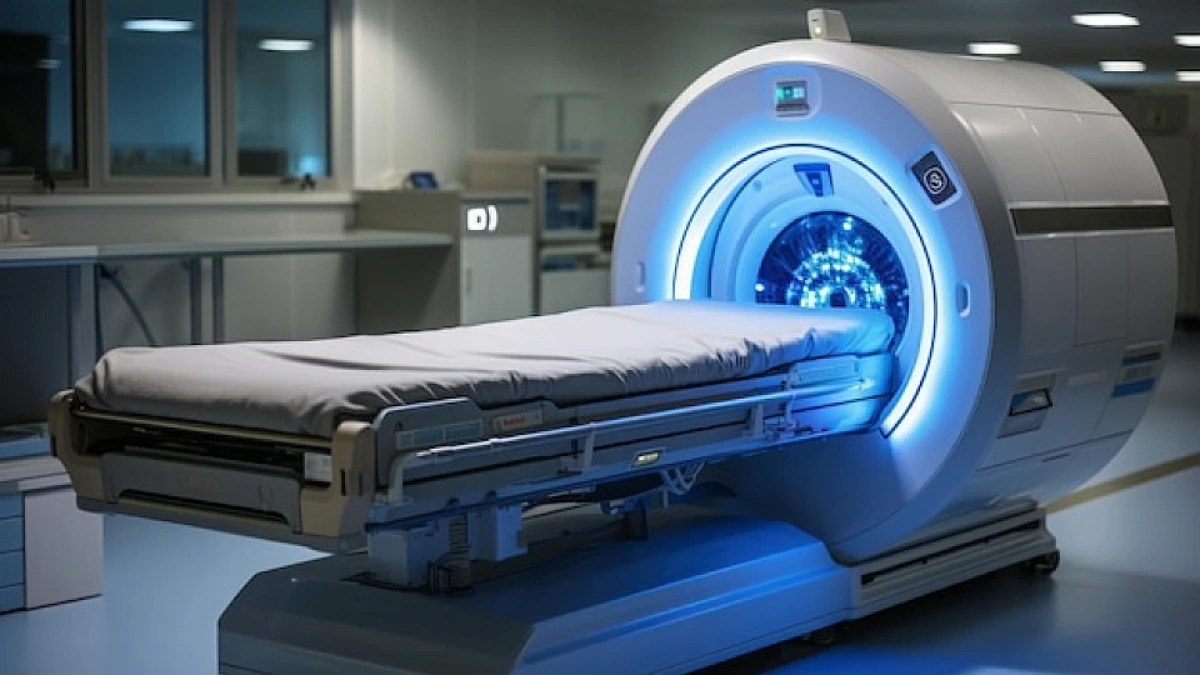When it comes to medical diagnostics, the utilization of an MRI scan in Turkey has gained significant attention due to its affordability and advanced medical facilities. An MRI scan in Istanbul price is especially competitive, making it a popular choice for those seeking quality diagnostics at lower costs. MRI, or Magnetic Resonance Imaging, employs potent magnetic fields and radio waves to generate images of the human body’s interior, enabling healthcare professionals to diagnose various conditions. In Turkey, cost-effective healthcare services and high standards have made it a preferred destination for medical tourists. For instance, a full body MRI scan in Turkey cost is often considerably less than in other countries, making Turkey a destination for those seeking the cheapest MRI scan in Europe.
What Happens During an MRI Scan in Turkey?
An MRI scan involves lying on a flatbed that slides into the scanner, done remotely by a skilled radiographer. Depending on the area being scanned area enter the scanner head or feet first. As the procedure progresses, the MRI scanner intermittently emits loud tapping noises as the electric currents in the scanner coils are manipulated. Patients are provided with earplugs or headphones to help them remain as still as possible throughout the scan.
What Does an MRI Show?
MRIs reveal detailed images of various body parts and are used to analyze the brain, heart, internal organs, bones, and joints.
When Would I Need an MRI?
Healthcare providers utilize MRIs for detecting and monitoring numerous conditions, including tumours, spinal injuries, cardiovascular diseases, and more.
How Does an MRI Scan in Turkey Work?
The process behind an MRI scan exploits the alignment of protons in the body under the influence of magnetic fields. Radio waves are sequentially applied to specific body regions, dislodging these protons. Upon ceasing the radio waves, the protons realign, releasing signals that help generate detailed images of the body’s internal structures, distinguishing various tissue types.
Why It’s Done?
An MRI scan serves as a non-invasive means for healthcare professionals to scrutinize internal organs, tissues, and skeletal systems, offering high-resolution images that aid in diagnosing diverse medical conditions.
Safety
MRI scans in Turkey are generally regarded as safe, although they may present challenges for individuals with claustrophobia. Modern MRI devices are designed with wider openings to alleviate discomfort. The procedure does pose potential risks for those with metal implants due to the magnetic fields used.
Good Candidate for an MRI Scan in Turkey
Not everyone is an ideal candidate for an MRI scan. Patients with certain metal implants, such as pacemakers or metallic joint prostheses, may require alternative diagnostic procedures. Turkey’s healthcare providers conduct thorough screenings to ensure patient safety and the integrity of MRI results. This careful vetting provides reassurance that each MRI scan delivers accurate and actionable insights.
Kind of Diagnose Conditions with MRI Scan in Turkey
MRI scans are instrumental in diagnosing a wide spectrum of medical conditions. Using robust imaging technology, these scans can uncover anomalies in brain structure, pinpoint spinal cord disorders, and elucidate joint issues. Additionally, cardiac MRI scans offer detailed evaluations of heart anatomy and function, making them indispensable for diagnosing cardiovascular conditions and planning interventions. The expertise offered by Turkey’s healthcare professionals ensures that all diagnostic outcomes are precise, fueling efficient treatment planning.
Types of MRI Scans in Turkey
Turkey offers a varied suite of MRI scans, tailored to address specific diagnostic needs. Among these are brain and spinal MRIs, heart MRIs, and extensive body scans that evaluate organs like the liver and kidneys. Advanced institutions also perform breast MRI scans, particularly valuable for cancer detection in dense breast tissue. These diverse imaging solutions cater to both routine check-ups and complex diagnostic challenges, thus fulfilling a wide spectrum of healthcare requirements
How Is an MRI Scan in Turkey Performed?
Before the scan, patients are advised to remove all metal objects to prevent interference with the magnetic field. Some procedures may involve the administration of a contrast agent to enhance image clarity, particularly for detailed visualization of blood vessels and certain organs.
Contrast Agent
Contrast materials like gadolinium improve MRI image quality. They are generally safe, but side effects can occur, including mild allergic reactions.
Anesthesia and Sedatives
Anaesthesia is not typically required for an MRI scan, though sedatives may be administered for patients experiencing severe anxiety or claustrophobia.
During the Scan
MRI scanners are open at both ends, and patients lie on a motorized bed that enters the scanner. Communication with the radiographer is maintained throughout, ensuring patient comfort and safety.
After the Scan
Following the scan, normal activities can usually be resumed immediately. However, if a sedative was administered, assistance with transportation may be necessary.
Open MRI
Open MRIs are designed to reduce claustrophobia by having an open structure, though they may not provide images as precise as those obtained from closed-bore MRI scan machines.
MRI with Contrast
For enhanced diagnostics, MRI scans with contrast material offer improved visibility of tumours, inflammation, infections, and vascular conditions.
Difference Between MRI and CT Scan
While both MRI and CT scans provide internal images, MRI avoids ionizing radiation and is superior for imaging soft tissues. Whereas CT scans excel in viewing bone injuries and certain types of cancer.
Who Shouldn’t Get an MRI?
Individuals with specific metal implants or conditions may not be suitable candidates for an MRI scan due to the safety risks associated with the magnetic field.
Conclusion
Choosing to undergo an MRI scan in Turkey offers both economic and quality advantages. For those seeking advanced imaging services, Avicenna International Hospital in Istanbul provides modern facilities, expert medical staff, and comprehensive care for all diagnostic needs. Full body scan Turkey services are affordable, with competitive pricing for full body MRI Turkey cost and other specific scans. This hospital exemplifies the high standards of care and professionalism available, ensuring that an MRI scan in Turkey is not just a medical procedure, but a gateway to enhanced health and well-being.
An MRI scan in Turkey typically costs between €100 and €500
MRIs are safe for most individuals, but the main concerns revolve around the presence of metal implants.







